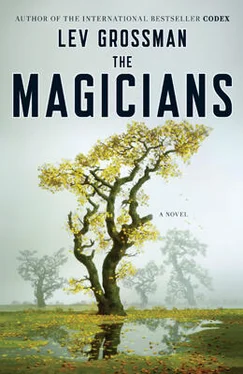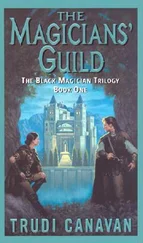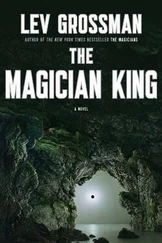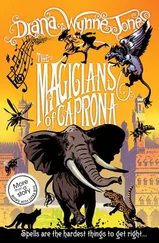A woman was fussing over him, a pretty woman. He couldn’t see what she was doing, but he felt her cool, soft fingertips moving over his skull.
He cleared his throat, tasted something bitter.
“You’re the paramedic. You were the paramedic.”
“Uh-huh,” she said. “Past tense is better, that was a one-time performance. Though I won’t say I didn’t enjoy myself.”
“You were there. The day I came here.”
“I was there,” she agreed. “I wanted to make sure you made it to the Examination.”
“What are you doing here?”
“I come here sometimes.”
“I’ve never seen you here.”
“I make a point of not being seen.”
A long pause followed, during which he might have slept. But she was still there when he opened his eyes again.
“I like the hair,” he said.
She was no longer wearing her paramedic’s uniform, and her dark hair was up, held in place with chopsticks, revealing more of her small, jewel-like face. She had seemed so young before, and she didn’t look any different now, but he wondered. She had the gravity of a much older woman.
“Those braids were a bit much,” she said.
“That man who died — what really happened to him? Why did he die?”
“No special reason.” A vertical line appeared between her eyebrows. “He wasn’t supposed to, he just did. People do.”
“I thought it might have something to do with my being there.”
“Well, there’s nothing wrong with your sense of self-importance. Turn over on your stomach.”
Quentin did, and she dabbed the back of his head with a liquid that smelled sharply and stung.
“So it didn’t mean anything?”
“Death always means something. But no, nothing apart from the usual. There, all done. You have to take care of yourself, Quentin. We need you in fighting trim.”
He rolled onto his back again. His pillow had grown cool while she worked. He closed his eyes. He knew that a more alert Quentin would be working harder to zero in precisely on who she was, and what part she was playing in his story, or he in hers. But he couldn’t.
“That book you gave me,” he said. “I think I lost it. I didn’t have a chance to read it.”
In his depleted, borderline demented state the loss of the Fillory book suddenly seemed very sad, a tragedy beyond all possibility of redemption. A warm tear rolled down his cheek and into his ear.
“Hush,” she said. “It wasn’t time yet. You’ll find it again, if you look hard enough. That much I can promise you.”
It was the kind of thing people always said about Fillory. She placed something cool on his burning forehead, and he lost consciousness.
When he woke up again she was gone. But he wasn’t alone.
“You had a concussion,” somebody said.
It might have been the voice that finally woke him up. It had been calling his name. He recognized it, but he couldn’t place it. It was calm and familiar in a way he found comforting.
“Hey, Q. Q? Are you awake? Professor Moretti said you had a concussion.”
It was Penny’s voice. He could even see the pale oval of Penny’s face, propped up on pillows, across the aisle from him and one bed down.
“That’s why you threw up. It must have been when we fell over that bench. You hit your head on the ground.” All the crazy anger had drained out of Penny. He was positively chatty now.
“Yeah. I know I hit my head,” Quentin said slowly, thickly. “It was my head.”
“It won’t affect your mental functioning, if you’re wondering about that. That’s what Moretti said. I asked.”
“Well that’s a relief.”
A long silence passed. A clock ticked somewhere. There was a lovely sequence in the last Fillory book, The Wandering Dune , when little Jane, the youngest Chatwin, catches a bad cold and spends a week in bed talking to the Drawing Master on board the good ship Windswept , attended to by soft, sympathetic bunnies. Quentin had always liked Jane. She was different from the other Chatwins: more thoughtful, with an unpredictable sense of humor and a sharper edge than her slightly saccharine, Dick-and-Jane siblings.
He wondered what time it was.
“What about you?” he said numbly. He wasn’t so sure he was willing to make nice just yet. “Did you get hurt?”
“I cut open my forehead on your tooth. And you broke my nose when you head-butted me. They fixed it with a Pulaski’s Mending. I’ve never seen it done like that before, at least not on a human being. She used goat’s milk.”
“I didn’t even know I head-butted you.”
Penny was quiet again. Quentin counted thirty ticks of the clock.
“Do you have a black eye?” Penny said. “I can’t see.”
“Huge one.”
“Thought so.”
There was a glass of water on the bedside table. Quentin gulped it gratefully and fell back on the pillow. Hot veins of pain flashed through his head. Whatever the paramedic had done, or whoever she was, he still had some healing to do.
“Penny. Why the hell did you hit me like that?”
“Well, I think I had to,” Penny said. He sounded a little shocked that Quentin would even ask.
“You had to.” Maybe he wasn’t too tired after all. “But I didn’t do anything.”
“You didn’t do anything. Oh, that’s right. You didn’t do anything.” Penny chuckled woodenly. His voice was oddly cool, as if he’d rehearsed this speech, his closing argument, many times. Behind it Quentin could hear that weird manic anger ramping back up. “You could have talked to me, Quentin. You could have shown me a little respect. You and your little girlfriend.”
Oh, God. Was this really how it was going to be?
“Penny, who are you even talking about? Are you talking about Alice?”
“Oh, come on, Quentin. You sit there, you give each other little looks, you laugh at me. Openly. Would you believe I actually thought it was going to be fun? That we were all going to work together? Would you believe I actually thought that?”
Quentin recognized Penny’s aggrieved tone. Once his parents had rented out the parlor floor of their brownstone to an apparently sane little man, an actuary, who had left them increasingly high-handed notes requesting that they stop videotaping him every time he took out the trash.
“Don’t be an ass,” Quentin said. He didn’t see this as a rise-above-it situation. What, was Penny going to come over and give him another concussion? “Do you even know what you look like to the rest of the world? You sit there with your big-ass punk attitude, and you expect people to come around begging to hang out with you?”
Penny was sitting up now.
“That night,” he said, “when you and Alice went off together. You didn’t apologize, you didn’t ask me, didn’t say goodbye, you just walked right out. And then, and then ,” he finished triumphantly, “you passed? And I failed? How is that fair? How is that fair? What did you expect me to do?”
So that was it. “That’s right, Penny,” Quentin said. “You definitely should have hit me in the face because you didn’t pass a test. Why don’t you go hit Professor Van der Weghe, too?”
“I don’t take things lying down, Quentin.” Penny’s voice was very loud in the empty infirmary. “I don’t want trouble. But if you come after me, I swear to you that I will get right back in your face. That’s just how it works. You think this is your own private fantasy world? You think you can do whatever you want? You try to walk all over me, Quentin. I’m going to come right back at you!”
They were both talking so loudly that Quentin didn’t even notice when the infirmary door opened and Dean Fogg came in, dressed in an exquisitely embroidered silk kimono and a Dickensian nightcap. For a second Quentin thought he was holding a candle before he realized it was Fogg’s upraised index finger that was softly glowing.
Читать дальше












